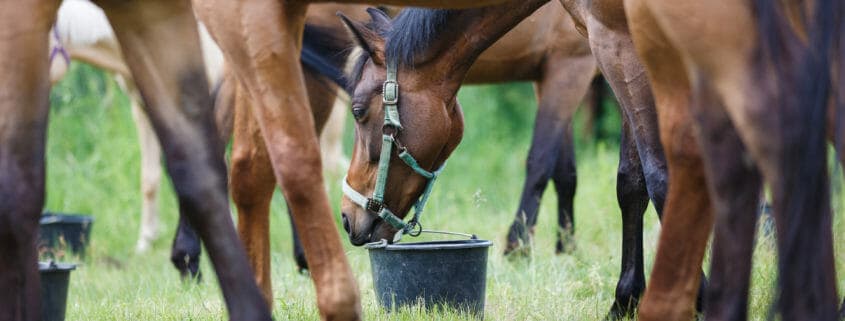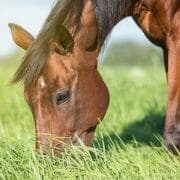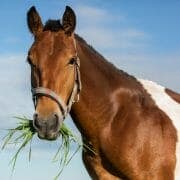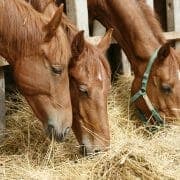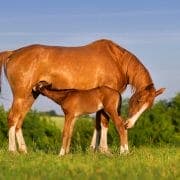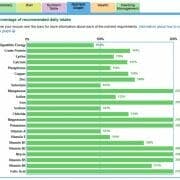Meal Size: Why Should it Be Little and Often?
What is the ideal meal size for a horse?
We have all been told ‘little and often’ when it comes to feeding horses. But why?
Well, when you consider horses are ‘grazers’ and their gut has been designed to work best with small amounts being consumed constantly over long periods of the day and night (they eat for up to 17 hours a day, can you imagine having to do that!) it makes sense that horses should be fed small meals frequently.
But here is a visual (in words) on why it is best to feed little and often… In the horse’s small intestine there are things called enzymes, which are like tiny pairs of scissors. An enzyme’s job is to cut big things like protein, starch and fats up into very small things like amino acids (the building blocks of protein), glucose (the building block of starch) and fatty acids (a building block of fats).
If these proteins, starches and fats don’t get chopped up they will not get absorbed because they are far too big to cross the intestinal wall intact. So for absorption to occur, these enzymes MUST chop the big stuff into little stuff!
Picture this…
Imagine you have a pair of scissors and are tasked with the job of cutting up a long piece of ribbon. The ribbon is trailing from a person going past you very slowly. If you have plenty of time to chop the ribbon multiple times then you can get it into small pieces. This is what happens in the gut. If a piece of protein for example goes moving through the small intestine very very slowly, the little enzymes have plenty of time to chop it up into amino acids so it can be absorbed.
Now imagine if the person holding the ribbon runs past you and you have to chop it up… you might get one shot at it before it is gone. And this is exactly what happens in the gut. If feed is moving too quickly through the gut the poor little enzymes simply don’t get enough time to chop anything up. Meaning the feed simply won’t be absorbed.
So back to meal size and the little and often concept… when you feed small meals, the feed will move nice and slowly through the gut and the enzymes will be able to do their job and fully digest it so your horse gains full benefit.
Feed large meals and all of a sudden you increase the speed with which it will travel through the gut and reduce the amount of time the enzymes have to do their cutting… meaning your horse misses out on a lot of the value from that feed. It will be digested to some extent in the hind gut but a lot of value is lost (and your $ wasted).
So while not the only reason you should feed little and often, it is a really important one to keep in mind.
If you have a horse struggling to gain weight eating huge feeds, something to consider is that you might find you get better results by feeding less.
Do you have a question or comment? Do you need help with feeding?
We would love to welcome you to our FeedXL Horse Nutrition Facebook Group. Ask questions and have them answered by PhD and Masters qualified equine nutritionists and spend time with like-minded horse owners. It’s free!
Click here to join the FeedXL Horse Nutrition Facebook Group

